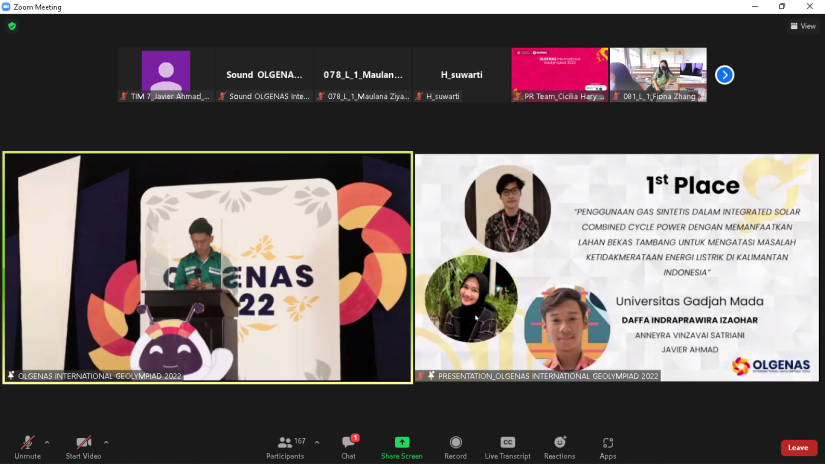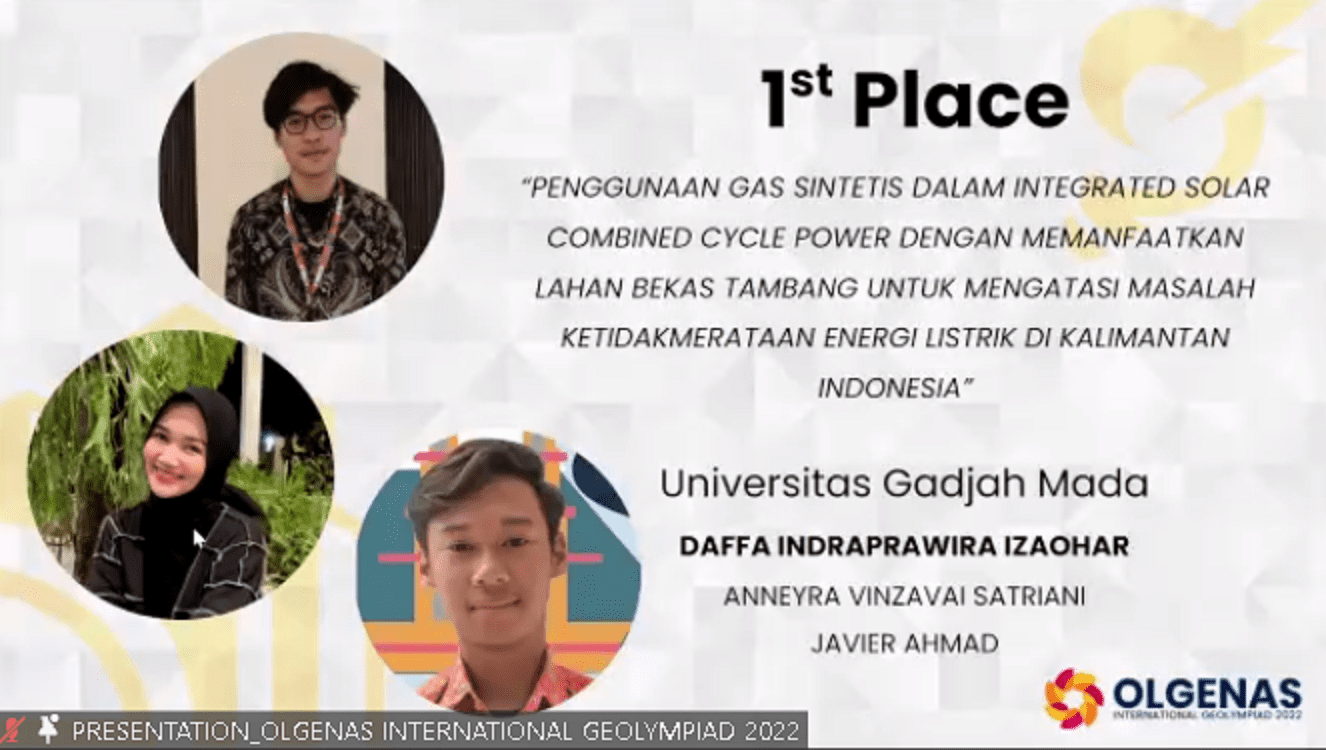
OLGENAS International Geolympiad is a major international competition event held by the Faculty of Geography, Universitas Gadjah Mada. This time OLGENAS presents a Scientific Paper competition for students with the theme The Future Power: Renewable Resources as Stabilizing Instruments towards Global Security. The OLGENAS Scientific Paper Contest is held online. There are three stages of the competition, namely abstract selection, paper selection, and finally the final presentation. This year, 50 teams from 16 universities participated in the OLGENAS Scientific Paper competition. And held from the start of abstract collection on October 16, 2021 until the final presentation on January 20, 2022.
The Physics Engineering team consisting of three people, namely, Daffa Indraprawira Izaohar as the chairman, Javier Ahmad as the first member, and Anneyra as the second member, won first place in the 2022 OLGENAS Scientific Paper competition. This team initiated an idea entitled “Use of Synthetic Gas”. in Integrated Solar Combined Cycle Power by Utilizing Ex – Mining Land to Overcome the Problem of Inequality in Electrical Energy in Kalimantan, Indonesia”. This work was based on the concerns of team members who saw that Kalimantan has a lot of potential as a place for generating electrical energy but there are still areas that have not been able to access electrical energy optimally.

So to realize the inclusiveness of new and renewable energy in the energy mix in Indonesia, the team had the idea of utilizing abandoned mining areas in Kalimantan and turning them into an energy complex. In addition, with the large number of oil palm plantations in Kalimantan, the team utilizes the waste of Oil Palm Empty Fruit Bunches (TKKS) into a synthesis gas that will be used as fuel for the generator. Synthesis gas which is a renewable energy will replace natural gas at the ISCC generator. The ISCC plant or Integrated Solar Combined Cycle is the plant chosen by the team where the plant can manage synthesis gas and can produce electricity more efficiently, because ISCC utilizesCombined Cycle which will manage fuel into electricity with two processing. ISCC power plants with synthetic gas fuel can support the NRE mix in Indonesia, which is targeted to reach 23% by 2025. In addition, ISCC plants with synthesis gas fuel can support a carbon-free movement.
“Considering that the team’s idea started from concerns about electricity distribution, it is hoped that students and the DTNTF community will have a lot of awareness about the unrest in Indonesia and move to find solutions to overcome this unrest. Starting from environmental, social, and so on.” said Javier as Team leader.



